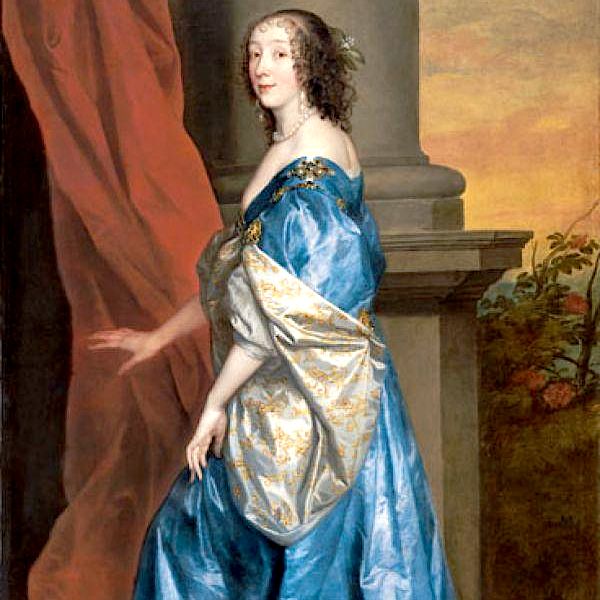Lucy Hay was the second daughter of Henry, Earl of Northumberland (the famous "Wizard Earl") and his wife Lady Dorothy Devereux.
In 1617, she became the second wife of James Hay, the first Earl of Carlisle. Her charms were celebrated in verse by contemporary poets, including Thomas Carew, William Cartwright, Robert Herrick and Sir John Suckling, and by Sir Toby Matthew in prose.
Nine years later, she was appointed Lady of the Bedchamber to Henrietta Maria, Queen of England. She soon became a favourite of the queen and participated in two of her famous masque plays.
Lucy was a conspicuous figure at the court of King Charles the First.
A contemporary scandal made her the mistress successively of Thomas Wentworth, the first Earl of Strafford, and of John Pym, his parliamentary opponent. Strafford valued her highly, but after his death in 1641, possibly in consequence of a revulsion of feeling at his abandonment by the court, she devoted herself to Pym and the interests of the parliamentary leaders, to whom she communicated the king's most secret plans and counsels.
On the fourth of January 1642, she was able to enact her most famous moment of espionage when she alerted Pym and four other Parliamentarians about the King’s intentions to arrest them. This act saved undoubtedly Pym’s life.
The King’s failure to eliminate his despised critics directly led to the outbreak of the first English Civil War.
In 1647, with the King defeated and Pym dead (he died from cancer on 8 December 1642), she attached herself to the interests of the moderate Presbyterian party, which met at her London home.
During the Second Civil War (1648-49), she became a Royalist supporter once again, famously pawning her pearl necklace to raise money for Lord Holland's troops, establishing communications with Prince Charles during his blockade of the Thames, and making herself the intermediary between the scattered bands of royalists and Queen Henrietta. As a result, her arrest was ordered on 21 March 1649, and she was imprisoned in the Tower of London, where she maintained a correspondence in code with the King through her brother, Lord Percy, until Charles went to Scotland.
She died shortly after The Restoration.
In 1844, Alexandre Dumas is reputed to have based his femme fatale, Milady de Winter, on the exploits of Lucy in his 1844 novel The Three Musketeers.
